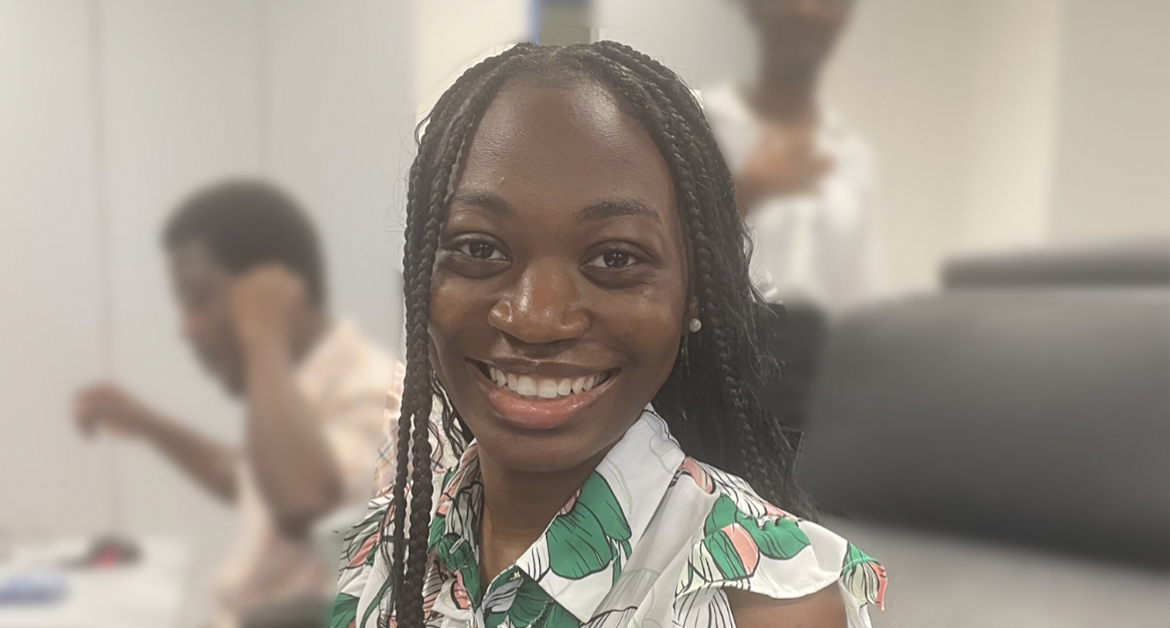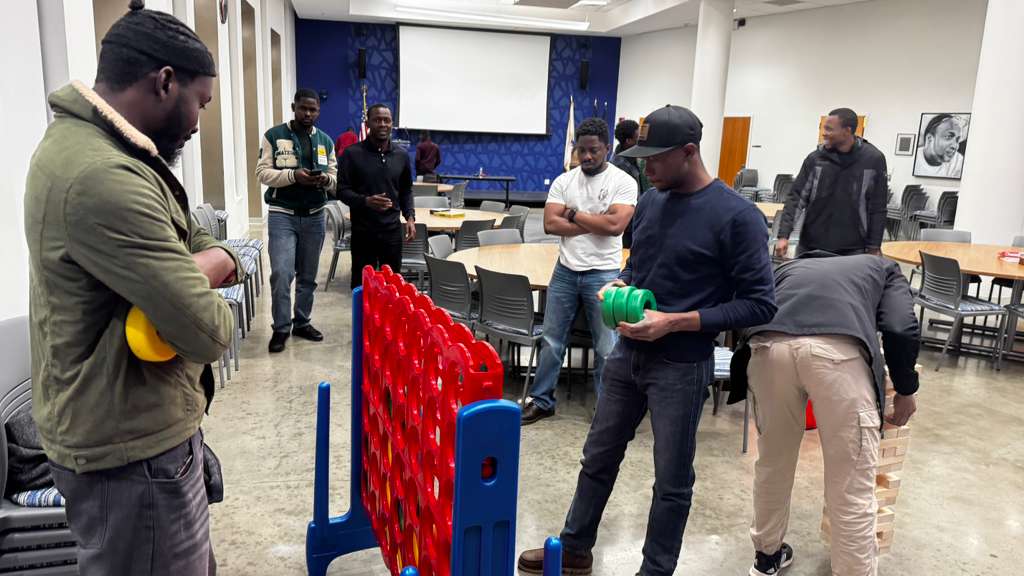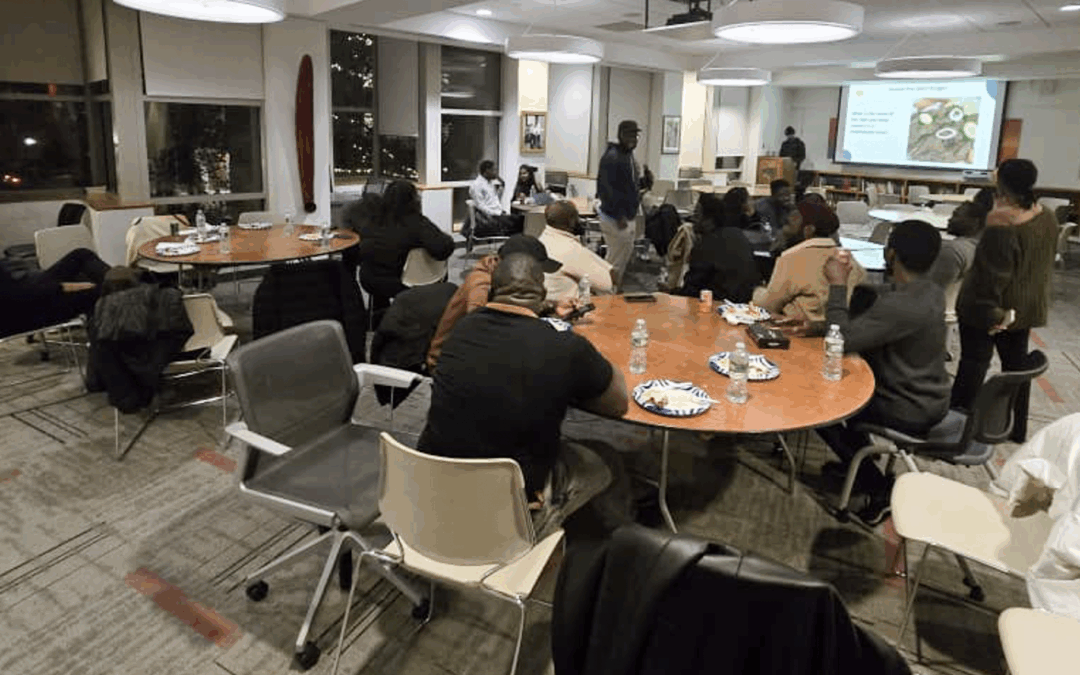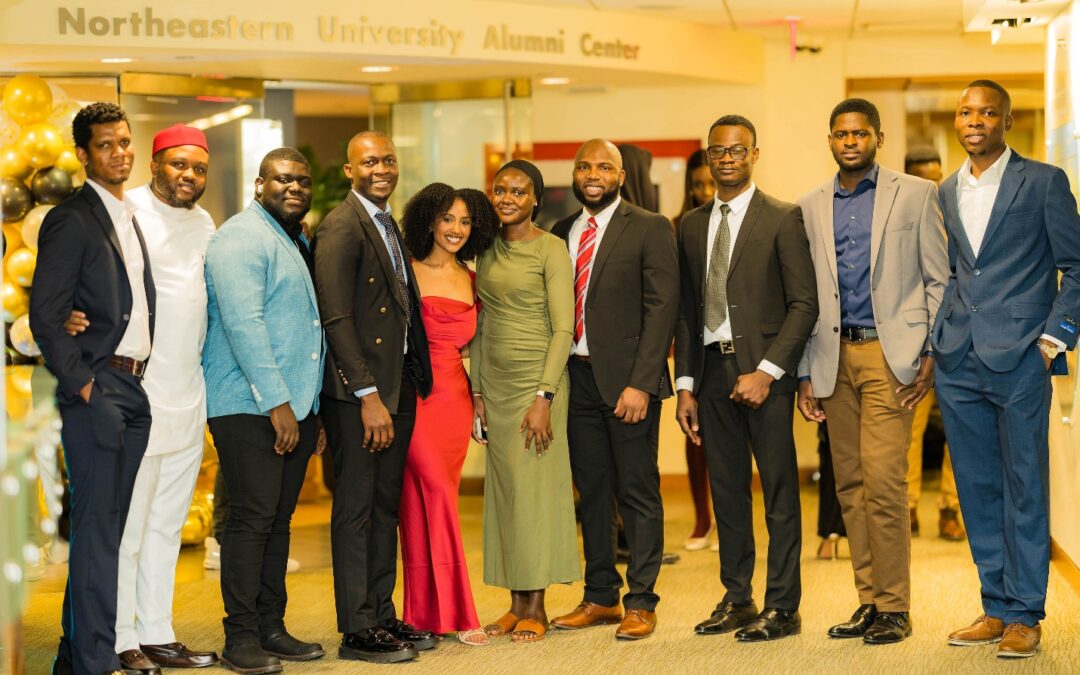Enam Fiattor is an undergraduate junior pursing her Biology degree with a Minor in International Affairs at Northeastern, currently on her first co-op in Ghana. Enam is a recipient of the Young Global Leaders Africa Fund for global co-ops. She shares her journey and experience so far and how she is thankful to Young Global Leaders, Northeastern, and her department, who contributed immensely towards this learning experience so far.
- Can you tell us about your experiences on your Global Co-op in Africa so far? What projects have you been involved in? Your Organization and where it is located.
It’s been a great learning experience so far. I am working two part-time positions in Accra, Ghana — one at Korle-Bu Teaching Hospital in the Department of Obstetrics and Gynecology, and the second at Noguchi Memorial Institute for Medical Research in the Immunology Department where I’m currently assisting in projects for the National Malaria Elimination Program (NMEP).
- How has this experience impacted on your personal and professional growth? Have you faced any challenges, and how did you overcome them?
This experience has impacted my personal and professional growth tremendously. I have truly learned a lot, and I am forever grateful for this experience. Even though I’m Ghanaian (first-generation), I had a bit of a culture shock during my first month post-arrival. I had to learn to adjust to the new order of things, though it wasn’t as difficult as compared to me going to a different country, but I learned to just take things day by day.
- What motivated you to apply for Northeastern University’s Young Global Leader grant for Global Co-op, and how has it contributed to your overall experience?
YGL is all about impact, as well as empowering and equipping students to be global citizens. It is a mission that resonated with me, especially since I have always had an interest in global health and making an impact regarding health policy in Sub-Saharan Africa, weather transportation, meals, or other miscellaneous expenses, this scholarship has helped me during my time here so far,
- What skills or knowledge have you gained during your time in Africa that you believe will be valuable for your future endeavors?
There is truly an importance in working on the ground and seeing things for yourself, especially in this context. Having a first-hand experience, though for a short period of time, is valuable. It allows for a new perspective, as well as helps inform others, who may not know or have gotten a chance at such an experience. It’s a key strategy when wanting to be involved in a cross-cultural discipline that I learned from my Global Health class this past Spring semester. In fact, it was my Professor (Dr. Olawepo) who supported me in this decision of coming here, after previously discussing the importance of gaining first-hand experiences in the global health sector during class.
- How have you been able to immerse yourself in the local culture and connect with the community during your Global Co-op?
It has been quite easy to immerse myself in the local culture and connect with the community. Majority of my family, as well as some friends, are here, so it’s been great spending more time with them aside from my usual visits during vacation.
- Can you share a specific example of a successful outcome or achievement from your work in Africa that you are particularly proud of?
I can speak for a recent experience that occurred at work. As previously mentioned, I am assisting with projects for the NMEP, where we’re currently working with samples from individuals from all 16 regions in Ghana. I was able to do a DNA Extraction, PCR, and Gel Electrophoresis on some samples, which allowed us to determine the specific species of malaria (e.g., Plasmodium falciparum) that these individuals were infected with. The results turned out nice, which I’m really happy about since the research focus is geared toward proper detection and treatment of those infected.
- How have you collaborated with local organizations or partners to address challenges and make a positive impact in the region?
I have decided to take full advantage of my experience here, which also includes getting involved with local organizations and/or partners. I’m currently working on a research (aside from my co-op positions) focused on maternal health in rural areas (e.g., Northern and Volta Region) due to the persisting regional disparities.
- What have you learned about the social, economic, or environmental issues specific to the African region during your Global Co-op?
I can speak to Ghana specifically, since Africa is not a monolith, though there are some similarities among countries. I have seen a drastic socio-economic gap among the population. It’s quite apparent, even within the same community/neighborhood. I have found myself more grateful for the opportunities available to me in the United States and at Northeastern, especially those privileges we tend to overlook, which are not necessarily available to others in Ghana.
- How do you plan to leverage your experiences and knowledge gained in Africa to make a difference in your home country or on a global scale?
I truly am grateful for this opportunity to expand my knowledge regarding global health delivery, specifically in Sub-Saharan Africa. In fact, having these first-hand experiences has allowed me to understand more about the healthcare landscape here, particularly the challenges faced by the population. These experiences are quite unique and valuable when translating it to health policies that are culturally competent and specific to the country/region at hand, rather than applying Western theories, alongside lack of on-ground work, to address these issues.
- What is your message to YGL Northeastern?
All I can really say is thank you. I am grateful for their financial support; I am also very grateful to AGI and all parties involved, including both the College of Science and the College of Social Sciences and Humanities. Words alone cannot express my gratitude. Most importantly, I can assure you that your efforts are not in vain. I am learning a lot, and I’m looking forward to what the future has in store for me.
- What are your messages for future recipients and students going to Africa for Global co – op in the future?
Be open minded, do not come with the pretense of what you are used to or have heard. This not only goes for those not directly affiliated with the continent, but also those who are, such as first-generations (children of immigrants), too. Most importantly, learn from the people around you — talk to individuals within the local communities, even your co-workers, and listen to their experiences. Also, make use of your time wisely during your co-op. Don’t let this opportunity be in vain. Get involved in the community, meet new people, try new things — the opportunities are endless. You’ll learn a lot, and it’s definitely an experience you will not regret.
- What are some of your favorites that we should know about?
Thinking about hobbies, probably reading, video editing, and exploring new restaurants. I recently tried a new restaurant in Ghana – B2B: Breakfast to Breakfast and Kukun in Osu. While at Noguchi, I enjoy buying lunch from Night Market. In terms of music, right now I have been listening to more instrumentals, but I enjoy listening to any kind of music. In Boston, you can probably find me at Seaport. It’s one of the few places I enjoy going to.



